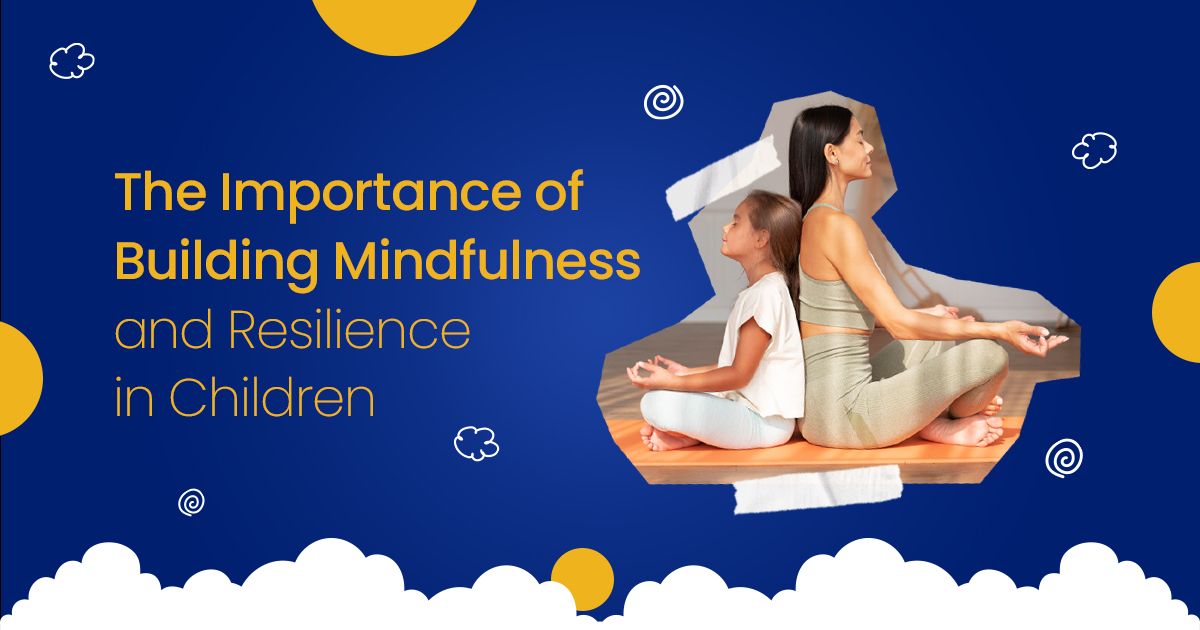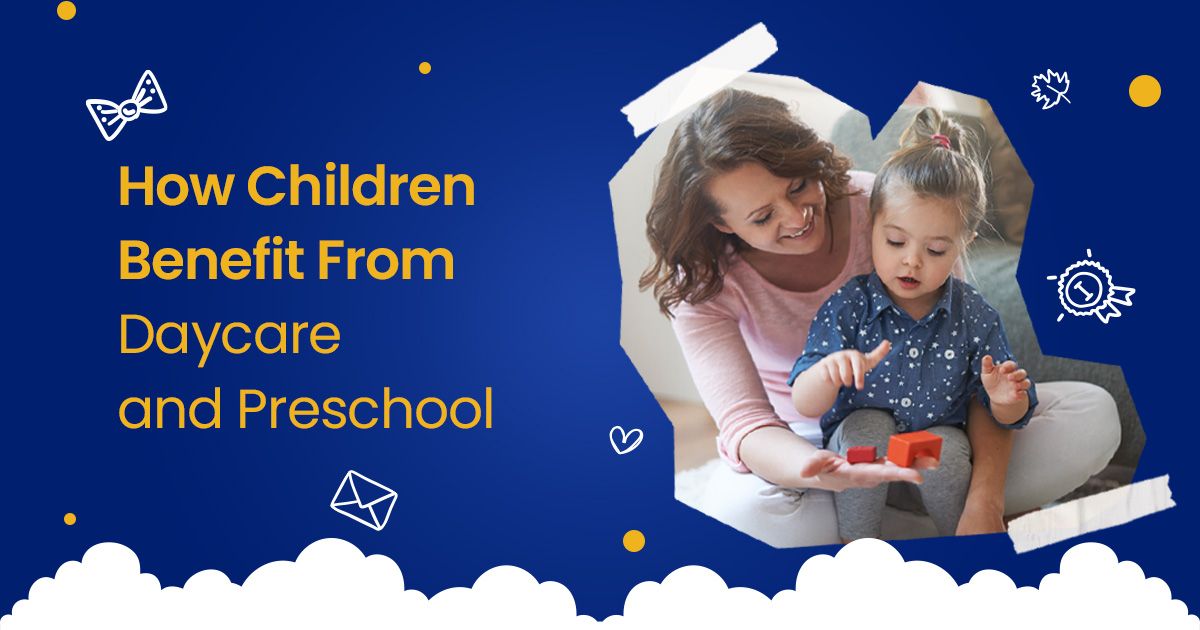
The Importance of Building Mindfulness and Resilience in Children
When it comes to raising your child both physically and mentally, you want to instill positive traits and emotions like perseverance, politeness, and emotional maturity.
Doing so helps kids grow up properly, develop positive relationships as they grow older, and succeed more both in school and in life.
Two key characteristics that parents must focus on especially are mindfulness and resilience. Let’s talk about them, why they matter, and what you can do as a parent to encourage their development.
What Is Mindfulness?
The Mayo Clinic defines mindfulness as an ability to “focus on being intensely aware of what you're sensing and feeling in the moment, without interpretation or judgment.” It specifically helps people who spend too much time daydreaming or anxiously planning for the future. While an awareness of what to do next matters, thinking too much about it can be draining on your energy and prevent you from focusing on the present at hand.
Mindfulness matters because it helps us reduce stress, maintain focus, and promote happiness. It’s a lesson that everyone in the modern world can benefit from, whether you’re an employee at a company or a new student at a school.
Children of preschool age certainly need to learn mindfulness as well. As they learn to grasp politeness, self-control, social situations, and other concepts that are new to them, the stress can make it difficult to navigate through school and personal relationships.
Building Mindfulness in Children
Children pick up mindfulness by osmosis. When they see their parents or caregivers at daycare practicing it, they will slowly embody it as well. Being able to practice mindfulness yourself goes a long way to instilling the trait in your children.
Even really young kids are able to detect distractions. The key to living in the present is encouraging children to treasure what’s happening now. Start by making eye contact when interacting with your child regularly. Instead of scrolling through your Facebook news feed, give your kids some regular attention.
Whenever you become frustrated or upset, do your best to stay calm around your kids. Take a breath, put your mindset back into the present moment, and proceed with what you were doing.
Parents and their children reflect off of each other when it comes to mood. When one is happy, the other one typically adopts that emotion. When one is frustrated, it seeps into the other. You can instill mindfulness by setting an example, the same way a daycare instructor would at school.
Tips and Tactics For Nurturing Mindfulness
To promote living in the present, a few exercises and routines to practice with your children include:
- Practicing long hugs with your child at certain times in the day.
- Be wary of when stressful situations pop up and think of ways to unwind.
- Careful meditation where you count your breaths.
- An outdoor nature walk to unwind.
- Enjoy a snack that calms you down. Aim for healthy options for children like yogurt and apples.
- Books and references specifically for practicing mindfulness in children.
Make developing mindfulness a team effort with your children for best results.
What Is Resilience?
You aren’t a loser for falling down; you become a loser when you choose not to get back up. Another equally important characteristic for children to learn is resilience, the ability to “bounce back” from setbacks in life and continue moving forward.
Even children face relatively difficult times, such as:
- Moving homes
- Making new friends
- Joining a new school
- Getting bullied
- Family problems
Without a resilient mindset, children might respond to overwhelming stress with anger or resentment. But thankfully, much like mindfulness, kids can pick up resilience through time and experience. A supportive parent or caregiver at daycare helps immensely.
Resilient children are able to cope with the difficulties of growing up far more easily. They are more confident when it comes to solving problems and learning new things, as they won’t be afraid to experiment and explore new worlds. And finally, they learn to manage their emotions better since they know that negative ones won’t last forever.
Building Resilience in Children
Personal relationships with parents, friends, and caregivers at preschool are the driving factors behind resilience in early childhood. The more kids feel safe and loved at home or school, the more likely they are to be willing to experience new things regardless of the setbacks.
Prepare your child by surrounding him or her with friends, relatives, and teachers. Encourage positive interactions amongst your community to instill a sense of belonging, which will ultimately convert into personal confidence and resilience.
Tips and Tactics For Building Resilience
Whenever emotions get tense, try these easy strategies to encourage your kids to respond maturely to setbacks.
Start small and work your way up: To make the journey much easier, start by overcoming smaller challenges. This precedent will boost the child’s ability to face larger setbacks.
Boost emotional maturity: Negative emotions like anger and anxiety are inevitable in life, but that doesn’t mean they can’t be managed. Teach your kids to identify strong emotions and think about how they can be mitigated.
Encourage your children to try new things: Whether it’s a new sport or a new hobby, always encourage kids to try new things. Even if it doesn’t go perfectly well the first time, show that you’re proud of them for trying again.
Make it a community-driven effort: Resilience doesn’t come from a vacuum. It needs positive relationships with one’s community to flourish. Kids need responsive parents and caretakers to answer to their needs. Have them meet regularly with teachers or relatives who care about them dearly. And tell them that there’s nothing wrong with asking for help from your friends and family whenever you need it.
Focus on the positives: Don’t make a lesson on resilience be entirely about messing up and trying again. Take time to talk about the positives of the day too. At dinnertime, for instance, talk about a favorite activity at daycare or whether any new friends were made that day.
Show that not every problem can be fully resolved: Maybe you didn’t get exactly what you wanted for Christmas that year, or a movie you’ve been looking forward to wasn’t quite as good as you hoped. Don’t try to solve every problem your children face. Rather, talk to them about their feelings and how they can manage them. It’s unrealistic to assume everything in life will work out.
And remember that resilience cannot be taught overnight. It comes with time as children gain more experience dealing with their emotions both at home, at school, and out in the community.
Get Started On the Right Foot with Kinderville
Daycare and preschool play a significant role in the personal, emotional, and social development of children.
Why not give your kids a jump start in life by choosing an experienced child care center that understands the needs of local families? Learn more about our facilities by clicking below.

Related Topics

Easing Separation Anxiety at Drop-Off: What We’ve Learned as Educators and Parents
Have you ever walked away from drop-off with a heavy heart, wondering if those morning tears mean something’s wrong, or if you’re doing the right thing? If so, you're not alone. We've stood at those doors too, both as educators and as parents, and we want to start by saying this: separation anxiety is completely normal.

Potty Training Tips: When & How to Start
Let’s talk about one of the biggest milestones in early childhood: potty training. Just saying the words can bring on a mix of emotions for parents: excitement, confusion, and sometimes even a little dread. If you’re not sure where to begin or whether your child is ready, you’re in good company. Potty training is a journey, and at Kinderville, we’ve guided many families through it with patience, encouragement, and a little humor too.

Screen Time & Toddlers: What’s Okay and What’s Not?
Let’s be honest. Most of us have handed our toddler a screen at some point — maybe during a long flight, a doctor's appointment, or a much-needed moment of quiet at home. You’re not alone, and you’re not doing anything wrong by needing a breather. But when it comes to screen time in early childhood, we often hear the same questions from parents:

A Day in the Life of a Toddler at Kinderville
If you’ve ever wondered what your toddler gets up to during the day at Kinderville, you’re not alone. For many families, this is one of the first times their little one is spending several hours away from home, and we understand how important it is to feel connected, informed, and reassured.

Our Promise to You is a Brighter Future For All
Your Child’s Home-Away-From-Home For Personalized Learning & Loving Care

The Importance of Building Mindfulness and Resilience in Children
When it comes to raising your child both physically and mentally, you want to instill positive traits and emotions like perseverance, politeness, and emotional maturity.

How Children Benefit From Daycare and Preschool
There’s no denying preschool and daycare play an important role in children’s social and mental development.

The Power of Play: How Kids Learn Through Fun
Have you ever seen your child talk to a teddy bear, create a fortress out of pillows, or pretend the living room floor is lava and thought, "This is so cute, but are they actually learning anything?"

Easing Separation Anxiety at Drop-Off: What We’ve Learned as Educators and Parents
Have you ever walked away from drop-off with a heavy heart, wondering if those morning tears mean something’s wrong, or if you’re doing the right thing? If so, you're not alone. We've stood at those doors too, both as educators and as parents, and we want to start by saying this: separation anxiety is completely normal.

Potty Training Tips: When & How to Start
Let’s talk about one of the biggest milestones in early childhood: potty training. Just saying the words can bring on a mix of emotions for parents: excitement, confusion, and sometimes even a little dread. If you’re not sure where to begin or whether your child is ready, you’re in good company. Potty training is a journey, and at Kinderville, we’ve guided many families through it with patience, encouragement, and a little humor too.

Screen Time & Toddlers: What’s Okay and What’s Not?
Let’s be honest. Most of us have handed our toddler a screen at some point — maybe during a long flight, a doctor's appointment, or a much-needed moment of quiet at home. You’re not alone, and you’re not doing anything wrong by needing a breather. But when it comes to screen time in early childhood, we often hear the same questions from parents:

A Day in the Life of a Toddler at Kinderville
If you’ve ever wondered what your toddler gets up to during the day at Kinderville, you’re not alone. For many families, this is one of the first times their little one is spending several hours away from home, and we understand how important it is to feel connected, informed, and reassured.

Our Promise to You is a Brighter Future For All
Your Child’s Home-Away-From-Home For Personalized Learning & Loving Care

The Importance of Building Mindfulness and Resilience in Children
When it comes to raising your child both physically and mentally, you want to instill positive traits and emotions like perseverance, politeness, and emotional maturity.

How Children Benefit From Daycare and Preschool
There’s no denying preschool and daycare play an important role in children’s social and mental development.

The Power of Play: How Kids Learn Through Fun
Have you ever seen your child talk to a teddy bear, create a fortress out of pillows, or pretend the living room floor is lava and thought, "This is so cute, but are they actually learning anything?"



